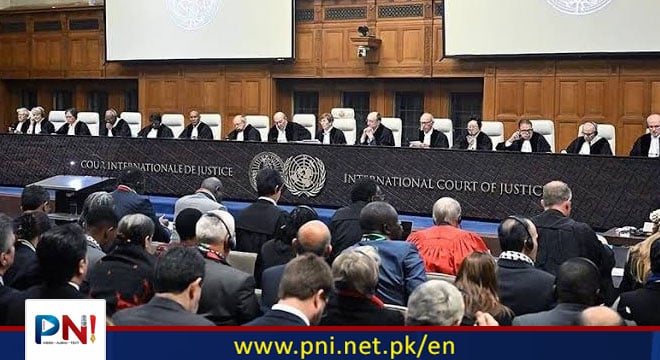THE HAGUE, Netherlands (PNI) The United Nations’ top court has ordered Israel to immediately halt its military offensive in the southern Gaza city of Rafah, though it stopped short of demanding a ceasefire for the entire enclave. Despite the order, Israel is unlikely to comply, increasing international pressure on the increasingly isolated nation.
Criticism of Israel’s actions in Gaza has intensified, especially since the focus shifted to Rafah. This week, three European countries announced they would recognize a Palestinian state, and an international court prosecutor requested arrest warrants for Israeli and Hamas leaders.
Israeli Prime Minister Benjamin Netanyahu faces domestic pressure to end the war, which began when Hamas militants attacked Israel, killing 1,200 people, mostly civilians, and taking roughly 250 hostages. Thousands of Israelis have been demonstrating weekly, urging the government to negotiate the hostages’ release.
Netanyahu’s government responded to the ruling by calling the genocide charges brought by South Africa against Israel at the International Court of Justice (ICJ) “false, outrageous and morally repugnant,” reiterating that the military does not target civilians.
South Africa brought the case because both countries are signatories to the U.N.’s Genocide Convention, which allows the court to resolve disputes under it.
While the ruling is a blow to Israel’s international standing, the ICJ lacks enforcement power. For instance, Russia has ignored the court’s 2022 order to stop its invasion of Ukraine.
The court’s ruling ordered Israel to halt the Rafah offensive, allow war crimes investigators access to Gaza, and significantly increase humanitarian aid to the region, which faces famine.
Rafah, on the Gaza Strip’s southern border with Egypt, has seen over 1 million people seek refuge in recent months. Israel has been preparing to invade Rafah, calling it Hamas’ last stronghold, despite warnings from allies about the potential disaster of such an assault.
Israel began issuing evacuation orders two weeks ago, leading to an estimated 1 million people leaving as forces advanced. Rafah hosts a crucial aid crossing, and the U.N. reports a decline in aid flow since the incursion began, though commercial trucking continues.
The court ordered Israel to keep the Rafah crossing open, declaring the humanitarian situation “disastrous.”
“This legally binding and very specific ruling leaves Israel with very little wiggle room,” said Reed Brody, a human rights lawyer and prosecutor.
Benny Gantz, a centrist member of Netanyahu’s war cabinet, indicated that Israel would continue its actions in Rafah to ensure security and return hostages, stating operations would adhere to international law.
Balkees Jarrah from Human Rights Watch noted the court’s order highlighted the dire situation in Gaza and urged the international community to leverage its influence on Israel.
The court’s president, Nawaf Salam, read the ruling as pro-Palestinian protesters demonstrated outside. The ruling stopped short of a full ceasefire in Gaza, as requested by South Africa, whose foreign minister Naledi Pandor welcomed the court’s decision and called for U.N. Security Council action to protect Palestinians.
The case against Israel for genocide in Gaza is ongoing, with interim orders sought to protect Palestinians. The court has found that Israel’s operations pose a “real and imminent risk” to Palestinians, and recent orders demand Israel prevent acts of genocide and improve humanitarian conditions.
The International Criminal Court (ICC) has requested arrest warrants for Netanyahu, Defense Minister Yoav Gallant, and top Hamas leaders for war crimes and crimes against humanity in Gaza and Israel.
Follow the PNI Facebook page for the latest news and updates.









